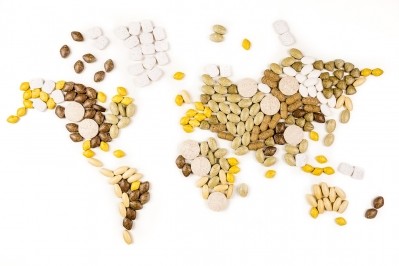Which Took Longer: Harry Potter or GMPs?

Barely a month before that book’s release, another much-anticipated publication was conferred on the supplement industry. On June 22, 2007, FDA issued the long-awaited Good Manufacturing Practices (GMPs) regulations for dietary supplements. For the dietary supplement marketplace, the arrival of product-specific GMPs was even more momentous than the final Potter book. So, on this tenth anniversary, it’s worth a look back, with the help of Hermione’s Time-Turner, to ask whether the expectations for GMPs have been fully realized.
The process of developing GMPs for dietary supplements began in 1994 with the passage of the Dietary Supplement Health and Education Act (DSHEA), with two simple statements enshrined in the statute. The first is the authorization that “The Secretary [of Health and Human Services] may, by regulation, prescribe good manufacturing practices for dietary supplements...” Second, a supplement is adulterated if “it has been prepared, packed, or held under conditions that do not meet [those] current good manufacturing practice regulations…” These pronouncements sounded simple, in theory, but have proved more difficult than finding a horcrux.
Following DSHEA’s enactment, regulatory feet at FDA dragged, forcing responsible industry to continue to live under the GMPs for food. Meanwhile, industry continued prodding the agency to act. CRN submitted comments to FDA in 1997 and, along with other industry trade associations, drafted suggested GMPs for it to consider. It wasn’t until 2003 that FDA released a proposed rule, which triggered another round of comments.
Finally, after a 13-year wait, FDA issued the final rule on GMPs in 2007, with a three-year roll-out period, depending on a company’s size. Industry generally welcomed the new rules—recognizing voluntary standards weren’t enough—and agreed that we needed to be held accountable for the quality of products sold on store shelves. Responsible companies quickly adapted to the new requirements, anticipating the rules would level the playing field. They expected the entire industry would rise to meet these standards.
Under the new GMPs, manufacturers were required to, for example, establish master manufacturing and batch production records, strengthen quality control operations, effectively manage consumer complaints, and beef-up testing of incoming ingredients and finished products. The new rule validated companies with responsible practices already in place and issued a call to action for those who didn’t.
Ten years later, in 2017, the industry is booming. More than 170 million Americans take dietary supplements, and the industry generates over $122 billion in jobs, taxes, and other revenue into the U.S. economy. As science continues to advance supporting the development of new products, consumers are taking notice and are increasingly embracing products that can support healthier lifestyles.
At the same time, however, FDA continues to find issues with non-compliant companies, requiring the agency to issue warning letters to those who seem to be ignoring GMPs. Whether these companies are simply unaware of the requirements, willfully blind to their obligations, or intentionally defiant, industry cannot continue to turn a blind eye. We need to change the narrative. It is not acceptable for supplement manufacturers to fail to test their incoming ingredients. They must have clear specifications for the ingredients in their products and maintain records demonstrating that the products were made following their exact “recipe.”

So, on this tenth anniversary, it’s worth asking: If FDA walked into your facility tomorrow, would it pass the government’s requirements for GMP compliance? If you hesitate to say yes, consider the elevated trust your customers have bestowed on you to deliver high-quality, healthy products every time. As an industry, we need to continue to educate our colleagues on how to institute and comply with GMPs. Fortunately, there are numerous consulting companies in the market—CRN has associate members who can counsel companies on properly following GMPs. These companies will work hand in hand with your regulatory staff, conduct audits of your facilities, and even certify your products. After all this time, companies who can’t or won’t adapt to GMPs should consider getting out of the healthcare industry.
FDA should send a stronger, deterrent message too with more aggressive prosecutions of the most flagrant GMP offenders. Repeated inspection failures should generate more than a warning letter. The responsible industry should applaud FDA when the guillotine falls on bad actors and urge elected officials on Capitol Hill to provide sufficient funding to the Agency so that it can more rigorously inspect and prosecute.
Soon, though, I expect consumers will demand more too. With unlimited access to information in the palm of their hands and an increased curiosity about the products they put into their bodies, it’s short-sighted to believe your business can survive without complying with GMPs. More educated and inquisitive consumers will not tolerate poor manufacturing and empty promises if trust is broken.
The industry has made great strides since 2007, but until every company is fully compliant with GMPs, we cannot be satisfied. Since the first Harry Potter book was published, he’s become a part of our culture—ask any 12-year-old what a “muggle” or what House they’ve been sorted into. It’s time the dietary supplement GMPs became just as much a part of our culture and reached that same level of universal mindfulness.











